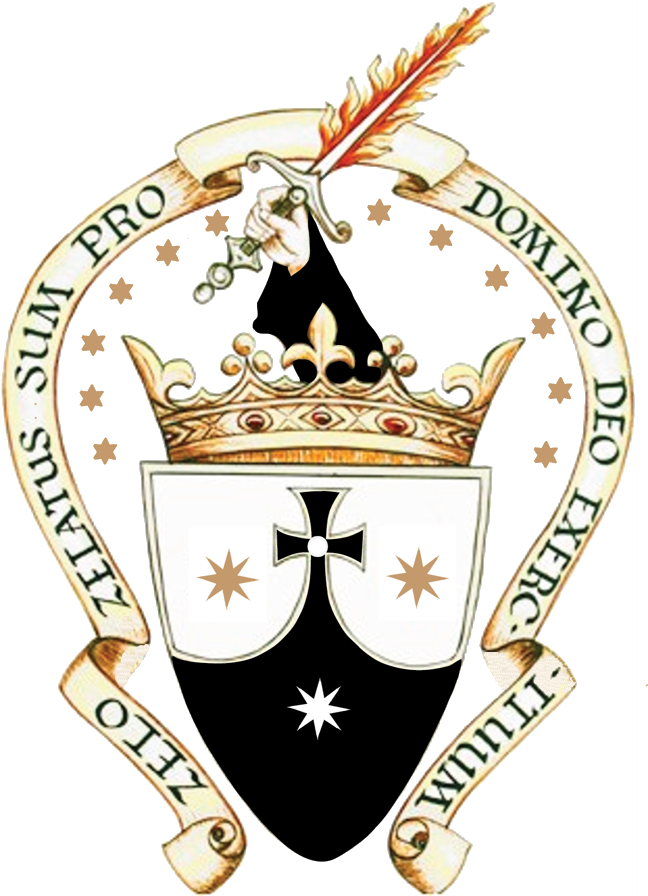The Lonely Life
Surrender to God
It is a doctrine that is very confirmed in the Church, that solitude is necessary to achieve union with God. Saint John of the Cross expresses himself thus: "The soul must live in solitude before entering into this state of union, because the soul which desires God finds no comfort in any society and everything there provokes more desire for solitude” (Cân. Canção 35)
The greater the degree of solitude, the greater the possibility for the person to become contemplative or hesicasta (solitary), as the Greeks say, wanting to designate a person who has been introduced into Hesichia, that is to say into the external and internal solitude, to be totally in the presence of God. Brother Thomás de Jesus, quoting several physicians, asserts that "totally hermit life is the apogee of religious life".
However, we must understand that this life, oriented towards the heavenly life, is always oriented towards perfection and union with God. All monastic rules are directed to this end. This, however, is achieved not only by personal effort, but also by divine grace. Thus, we read in the book of the institution which says: “This life of religious perfection has two ends: first, we can realize our efforts. This purpose is to offer to God a heart pure from all the present stain of sin.
We achieve this goal when we are in Carit, that is, when we are hidden in the fountain of charity, as the Lord said to Elijah: You will hide in the torrent of Carit. The other extremity of the hermitic holy life is a totally free gift from God and which He communicates to the soul.
It consists in the fact that, not only after death, but also in this mortal life, you can taste in the affection of love and in the enjoyment of the light of understanding something supernatural concerning the power of the Presence of God and the enjoyment of Eternal Glory. It means drinking in the torrent of divine joy (contemplation). God promised Elijah this end by saying to him: And there you will drink Torrent. "To reach this state, the soul must leave everything and despise the present life, to have only God in the heart...
Saint John Climacus explains it thus: “The first age of monastic growth consists in regulating the passions: this is the task of beginners. The second stage of growth, which transforms a still adolescent spiritual being into a youth, is the practice of psalmody. Once the passions are weakened and subdued, the psalmody becomes sweet when recited, it wins a prize before God, for it is not possible to sing to the Lord in a strange land, that is, in a heart attached to the passions.
This is what recognizes those who progress. The third step on the growth ladder that advances a young person toward spiritual maturity is perseverance in prayer: distinct from those who have progressed. So there is the same difference between psalmody and prayer as between a mature man and a young man. The fourth stage of spiritual growth follows, that of the eldest, with white hair: it is the fixed and motionless gaze of contemplation, the attribute of the perfect. The route is complete; the top of the stairs is reached. »
Finally, living more in heaven than on earth, this person acquires the gift of continuous prayer. When a soul reaches this stage, it can say as in the Song of Songs: “I sleep, but my heart watches”. (Ct. 5.2) or again: "do not wake the woman until she wants to." (Ct. 8.4)
"The solitary of his cliff yields to the divinity of religion, without a sound of words, a public testimony no less
brilliant than the preachers of the Gospel" (Le Vie Solitaire - Father Francisco Pallau).
Monasteries may have hermitages which may reside in the desert, near the Monastery, to assist with Holy Mass and the Sacraments. In each Hermitage, there is only one vowed nun. However, they can have several hermitages on the same land, but without community life. The anchorites can take part in the life of the community in the great ceremonies, or choose perpetual seclusion.
Nuns can live their whole life participating in community life, such as prayer, formation, work and leisure, or for a specific period, according to God's will for each.
The life of an anchorite, that is to say totally solitary, is not authorized until after perpetual profession. Exceptionally, an authorization can be granted after the temporary profession of the monk, but in this case, it will be accompanied in a special way by the prioress, or, if this is not possible, by the professed responsible for the hermitage.
Here care is taken that this election is not the result of human whims, but of a deep maturation in spiritual direction with the Prioress and the Master, aiming for a mature path in faith and vocation, avoiding the great life-threatening instability of the nun between one way of life and another.
This does not imply that one can never pass from Anchorite to cenobitic life and vice versa, but with the due discernment, coming from the obedience that guides everything towards God.
In the solitary life, the nun is invited to follow the same hours as the Community, but she has the flexibility to follow her own schedule, as long as she has the blessing of obedience, for the anchorite life is beyond the time.
